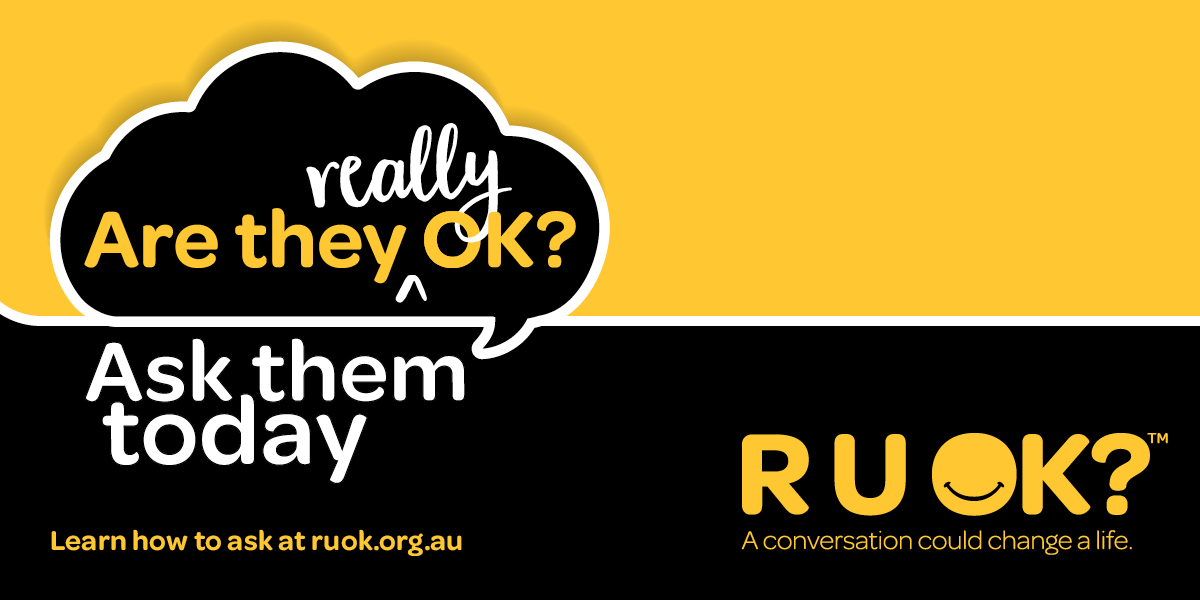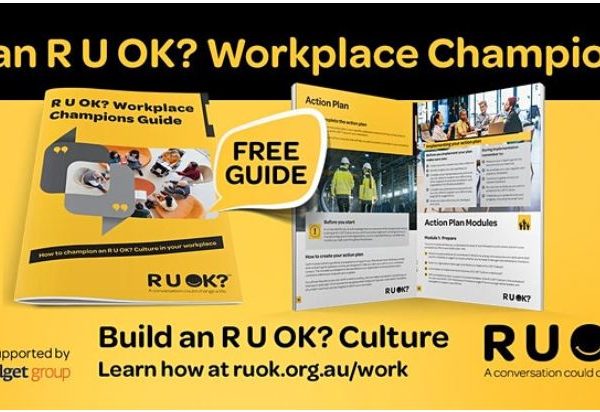R U really ok? Not just today, but every day – the importance of checking in with ECEC

With new research showing that nearly a quarter of all Australians aren’t reaching out to ask others if they are ok, the team behind R U OK? Day has made the 2021 theme “Are they really OK? Ask them today,” to encourage all Australians, including those working in early childhood education and care (ECEC), to think about how the people in their world are faring in terms of mental health.
“R U OK? is encouraging all Australians to pause and consider how the people in their world are really going, and to make asking ‘are you OK?’a part of their everyday life,” Katherine Newton, R U OK? CEO said.
R U OK? Day, held Thursday 9 September, is a national day of action that reinforces the importance of staying connected with friends, family and colleagues through all life’s ups and downs, big or small.
Conversations about people’s mental health should not only be for when someone is in visible distress, or going through a crisis, but rather should be an everyday circumstance, and a reminder that support can make a difference.
“None of us are immune to life’s challenges whether that’s a relationship breakdown, financial worries, work pressure or, sadly for some, the loss of a loved one,” Ms Newton explained.
“Sometimes it won’t be obvious that someone is having a hard time but we know that when we ask early and in a genuine way, we can help someone who might be struggling feel connected and supported, long before they are in crisis.”
R U OK? has released a range of free resources in the build-up to R U OK? Day including tips and tools to help Australians know when and how to have an R U OK? conversation.
Joining R U OK? to champion the ‘Are they really OK? Ask them today’ message is Glenn Cotter, an R U OK? Community Ambassador from the Bega Valley in NSW who is committed to starting R U OK? conversations in his community.
“We all face challenging times and, in my community, it’s been a challenging few years,” Mr Cotter said.
“We have come out of many years of drought through bushfires into COVID-19 so it was important that we continued to get the R U OK? Message out through the Bega Valley and Eurobodalla Shires as we continue to rebuild a strong proud community.”
For those unsure about where to start, he recommended the Guide to supporting R U OK? Day as a good point for people wanting to get involved this year.
“Since joining R U OK? in 2018 we have continued to connect our community through a series of family & community days, including events such as the Kameruka Cricket Club Cricket and Conversation days which began in 2019 and help in getting meaningful conversations started all year round.
“It’s such a pleasure to see the confidence growing in our community to support our mates and genuinely ask our mates and family: are you OK?”
Conversations make a difference
It’s also important for people to understand that when conversations happen, they do make a difference, explained Ann-Maree Fardell Hartley, Registered Psychologist and Suicidologist.
“Research has found 80 per cent of those who have recently spoken to someone about something that’s troubling them feel more supported and cared about and 72 per cent said it helped them feel better about themselves and their situation.”
“Everyone has a role to play in ensuring the people in their world feel connected and supported,” Ms Fardell Hartley said. “The free tools and resources that R U OK? have available can help you build your confidence to support your friends, family and colleagues. You don’t have to be an expert, just a good friend and a great listener.”
To download the free resources including the ‘Guide to supporting R U OK? Day’ please see here.
For support at any time of day or night, call Lifeline on 13 11 14.
Popular

Workforce
Policy
Quality
Practice
Provider
Research
ECEC must change now, our children can’t wait for another inquiry
2025-07-02 07:47:14
by Fiona Alston

Practice
Provider
Quality
Workforce
Leading with Curiosity: How distributed leadership is redefining the future of early childhood education
2025-07-03 07:42:07
by Contributed Content

Events News
Workforce
Marketplace
Practice
Quality
Provider
Research
An exclusive “Fireside Chat” with ECEC Champion Myra Geddes
2025-07-01 11:25:05
by Fiona Alston













